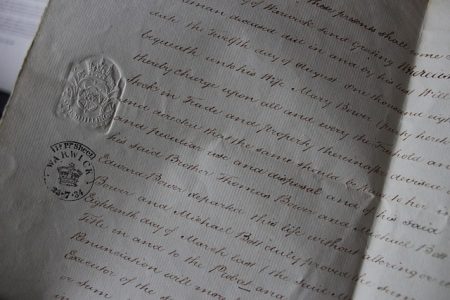 Although a sober topic, having a will in place is one of the most important things you can do to ensure your estate is taken care of in the event of your death. A will is a testament of your wishes as to how you wish your assets to be distributed. If you die without leaving a will, or your will is outdated, it can cause confusion and in some cases, conflict and/ or legal and financial difficulty amongst your family as to how to divide your estate.
Although a sober topic, having a will in place is one of the most important things you can do to ensure your estate is taken care of in the event of your death. A will is a testament of your wishes as to how you wish your assets to be distributed. If you die without leaving a will, or your will is outdated, it can cause confusion and in some cases, conflict and/ or legal and financial difficulty amongst your family as to how to divide your estate.
It also creates a structured framework in terms of how you would like your funeral to be carried out and who you would like to administer and execute the will.
Wills in New Zealand are governed by the Wills Act 2007.
How do I create a will? Can I write one myself?
Your solicitor can draft your will and provide you guidance as to which areas of your estate you need to make allowances for, ensure the will’s validity under New Zealand law, and make sure it is correctly signed and witnessed. It is possible to create a will yourself, however drafting a will can be a complex procedure when dealing with property and sums of money, or as is often the case, debt such as mortgages and providing for children and family members.
Consulting with your solicitor will help you to consider all aspects of your estate and minimize the chances of your will being open to being challenged. Challenges and disputes around a will can be lengthy, distressing for your family, and eat into the costs of your estate.
What do I need to include in my will?
Some of the things to consider in the event of your passing away are the following:
- Any land that you own
- Investments
- Collections or items of significant value or sentimental value such as heirlooms, furniture and artworks
- Children, family members, friends and spouses to be provided for or left certain items of importance
- Guardians to be appointed to take care of any dependent children until they come of age
- Charities or organisations you wish to leave money to
- The persons you wish to appoint as executor and trustee of your will. The executor of your will acts as your personal representative, and it is their job to ensure that your wishes are followed and your assets are distributed accordingly.
What about changes to my will?
As life changes occur, it’s advisable to consider if your will reflects your current life position. Major changes can be purchasing or selling a property or entering into a marriage or civil union. It’s important to ensure that updates to your will are witnessed accordingly, else they may not be considered valid, and the previous version of your will is then relied upon. Although it is often assumed that everything you own passes to your spouse or partner, it is not always the case.
You want to ensure you keep a copy of your will in a safe place – often people keep one on file with their solicitor, as well as a copy in a safe place at home. It is prudent to advise the executor of your will where you have elected to store it, so that it can be located.
What if I don’t have a will? What happens to my estate?
If you pass away without leaving a will, you are considered “intestate”. When this happens, your estate is distributed according to the law. The Administration Act 1969 provides for how your estate will be divided, according to the relationships and family you have living, such as parents, a de facto partner, spouse, or children.
To view our Will Instruction Sheet click here

